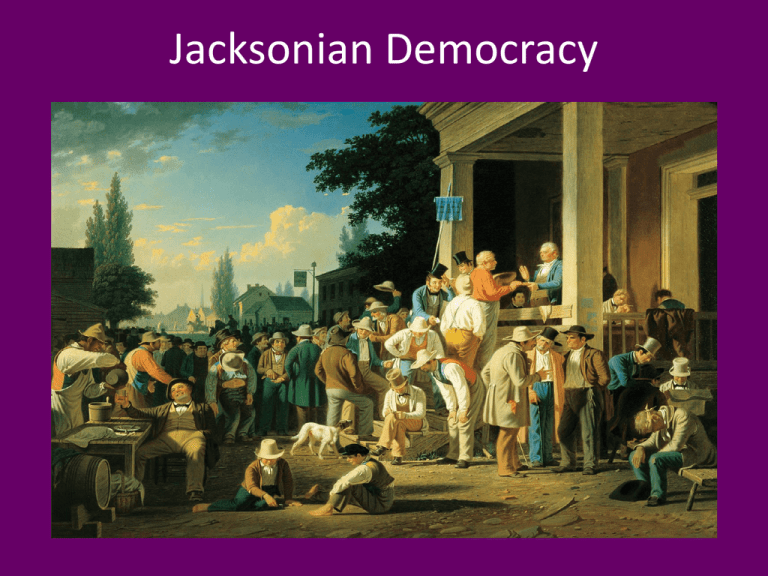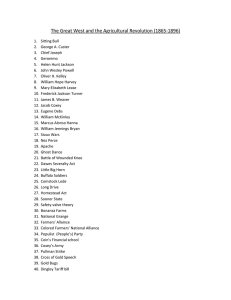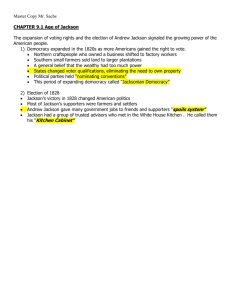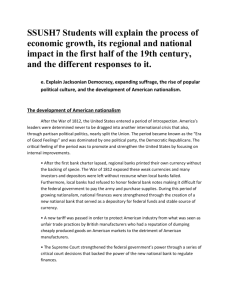Jacksonian Democracy
advertisement

Jacksonian Democracy Frederick Jackson Turner’s Frontier Thesis • 1893 Chicago World’s Columbian Expo • 1890 = Frontier declared “closed” • Reassessed the significance of frontier in American life “Wherever social conditions tended to crystallize in the East, whenever capital tended to press upon labor or political restraints to impede the freedom of the mass, there was this gate of an escape to the free condition of the frontier…Men would not accept inferior wages & a permanent position of social subordination when this promised land of freedom and equality was theirs for the taking.” --Frederick Jackson Turner, 1893 Andrew Jackson • Known for: Indian Removal, the Bank veto, and Jacksonian Democracy • 1828 election = Massive popular election & turning point in American political life Jacksonian Democracy • Spread of new practices & institutions that spread political power to people who did not have it before. • Mass participation in elections • Rise of modern 2-party system • Democracy defined by popular sovereignty, majority rule through free elections Early National Period • Strict and severe property requirements • Most political offices elected by representatives • Deferential political culture • Non-competitive & non-contested elections Changes in Suffrage • 1820s = states rewrote constitutions to grant voting rights based upon white manhood • Poor white men now viewed as fit for selfgovernment 2-Party System • Creation of mass rituals • 1790s = Federalists & Anti-Federalists to Federalists & Democrat-Republicans • 1830s = Democratic Party became 1st modern, mass democratic party • Democrats vs. Whigs Whigs vs. • Supported federal government spending on internal improvements like bridges, railroads, canals • Wanted to strengthen the infrastructure of U.S. • More critical of slavery • Northern Democrats • Populist rhetoric • Suspicious of all attempts to restrict slavery • Southern & frontier Western Boisterous Elections • Banners, floats, parades, riots • Elections associated with white, male, frontier behavior Jackson’s Background • Scotch-Irish Immigrant parents • Raised in Carolina frontier • Lawyer and War of 1812 military leader • “Old Hickory” Bank War • Bank of U.S. = Private corporation & central bank used by federal government • 1st Bank of U.S. chartered in 1791 • 2nd Bank of U.S. started in 1816 • 1832 Jackson vetoed renewal of bank’s charter • 1789 – 1829 = Presidential veto used 9 times • 1828 – 1836 = Used 12 times • Led to Panic of 1837 Global Perceptions of U.S. • Equality of condition vs. equality of opportunity






